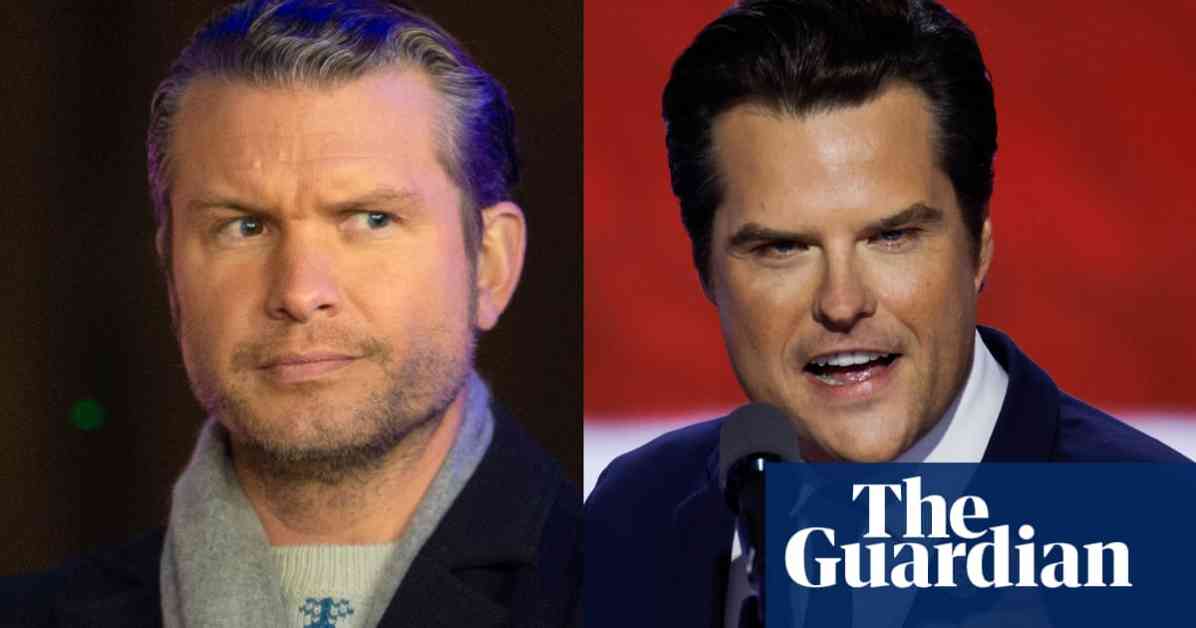The confirmation prospects of two of Donald Trump’s most controversial cabinet choices were in jeopardy on Friday over sexual misconduct allegations. This mirrors the president-elect’s own history of abusive behavior towards women. The nomination of Pete Hegseth as defense secretary, already complicated over concerns about his inexperience and extreme views, faced uncertainty following revelations of a 2017 sexual assault investigation in California. Although no charges were pressed, the seriousness of the allegations prompted Trump’s chief of staff, Susie Wiles, to speak with Hegseth. Additionally, Trump’s lawyers also engaged with Hegseth regarding the issue.
The controversy deepened with Matt Gaetz, the far-right Florida congressman nominated as attorney general, who had faced sex-trafficking allegations and accusations of engaging in sexual activity with a minor. Republican and Democratic senators pushed to review a House of Representatives ethics committee report on Gaetz’s conduct, despite his resignation from the House. The report’s content, expected to be damaging, could impact his nomination. Senators demanded that the report be preserved for potential use in Senate confirmation hearings.
Gaetz’s nomination was seen as part of a broader effort by Trump to overhaul the justice department, which he has criticized for investigating him during his previous presidency. Similarly, Hegseth’s nomination aimed at restructuring the armed forces, which he believes is hindered by “woke leadership.” However, the revelation of the 2017 investigation into Hegseth’s alleged misconduct could affect his confirmation process. The alleged incident occurred at the Hyatt Regency hotel in Monterey, California, during a Republican women’s conference.
Amidst these controversies, concerns have been raised about the vetting process for Trump’s nominees. Reports suggest that standard FBI background checks on some controversial nominees may have been overlooked. This has drawn attention to the past behavior of Trump’s picks, reflecting the president-elect’s own history of sexual misconduct allegations. Trump was previously ordered to pay damages for sexual assault and defamation, while facing accusations of inappropriate behavior from multiple women.
The selection of Robert F Kennedy Jr as the secretary of the Department of Health and Human Services has also been marred by sexual misconduct allegations. A former babysitter accused Kennedy of groping her in 1998. Kennedy responded to the accusation by stating, “I’m not a church boy.” These allegations add to the growing concerns surrounding the ethical considerations of Trump’s cabinet members.
The controversies surrounding Trump’s cabinet nominees highlight the importance of thorough vetting processes and ethical considerations in selecting individuals for key positions. The handling of sexual misconduct allegations against nominees raises questions about accountability and transparency in the political sphere. As these issues continue to unfold, it remains to be seen how the Senate will address the confirmation of individuals facing such serious allegations.












